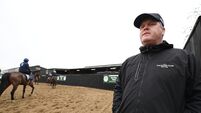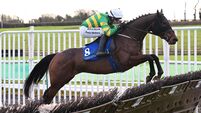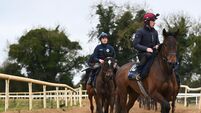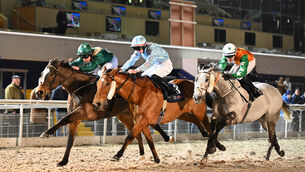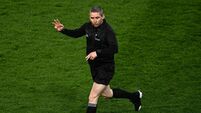Andrew and Robbie McNamara: Brothers in arms
Robbie is happy to sit on the sofa there, beside Andrew. Sure enough, nimble as you like, he flicks himself out of his wheelchair and onto the couch before you have the chance to feel even a little awkward about helping or not helping, before you have even had the chance to offer to help. His brother sits down beside him, same smiles, similar blue shirts, same team, same hymn sheet.
“I remember looking at my legs after the fall,” Robbie is saying, “and they wouldn’t work. But it didn’t even register with me. I was just in so much pain in my chest. I couldn’t breathe, and I was more worried about that than my legs.

